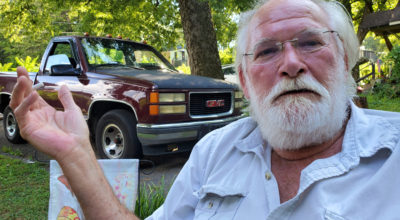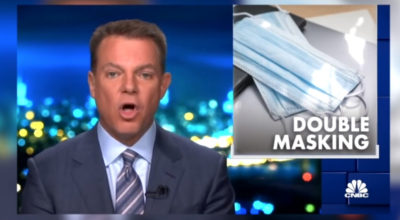
CHATTANOOGA, Tenn. Monday, March 21, 2022 – The warrantless arrest of a homeschool mom who refuses to wear a mask violates two laws in Tennessee – the constitution and a black-letter statute that forbids an arrest in such circumstances as hers, a quiet conversation in a Cleveland, Tenn., clinic.
By David Tulis / NoogaRadio 96.9 FM
The warrant law shows just how important judicial approval is for an arrest BEFORE it happens. The current pattern routinely puts that judicial nod AFTER the arrest, sometimes weeks later.
Confronting Mrs. Hedgcock, Cleveland policeman B. Reagan (No. 2349) would have investigated the claims made by Cleveland Imaging operations manager Bo Guffey, then taken Mr. Guffey to the Bradley County magistrate to swear out a complaint. The state is charging Mrs. Hedgcock with criminal trespass, a misdemeanor.
The key task of the cop’s getting the warrant for Mrs. Hedgcock’s arrest is putting Bo Guffey’s complaint into writing, which creative task is given to the magistrate.
Upon information made to any magistrate of the commission of a public offense, the magistrate shall examine, on oath, the affiant or affiants, reduce the examination to writing, and cause the examination to be signed by the person making it. [Emphasis added]
T.C.A. § 40-6-204. Informants; examination
The swearing out of a complaint, either before a magistrate, a sessions court judge or a sessions court clerk, is a vital step to make the arrest of Mrs. Hedgcock more certain, and less likely to be arbitrary, capricious and harmful to an innocent member of the citizenry.
If the magistrate is satisfied from the written examination that there is probable cause to believe the offense complained of has been committed and that there is probable cause to believe the defendant has committed it, then the magistrate shall issue an arrest warrant. [Emphasis added]
T.C.A. § 40-6-205. Issuance; probable cause
The law is particular about what goes into writing, swearing and judicially inking an arrest warrant. Your liberties exist if this process is fulfilled – and obeyed at the right time.
The finding of probable cause shall be based on evidence, which may be hearsay in whole or in part; provided, however, that there is a substantial basis for believing the source of the hearsay to be credible and for believing that there is a factual basis for the information furnished.
T.C.A. § 40-6-205. Issuance; probable cause
Remember – these protections operate BEFORE the arrest. It is improper and unjust for these steps to be performed in sessions court at an arraignment or a probable cause hearing.
The probable cause hearing in Mrs. Hedgcock’s case, set by Sheridan Randolph, general sessions judge, should be AT THE START of the confrontation, that Friday morning when Mrs. Hedgock showed up for her appointment.
The warrant is based on probable cause, which is a lesser legal standard than that required for conviction at trial. The “evidence” must have a “substantial basis for believing the source of the hearsay to be credible” and that there is a “factual basis” for the allegations.
The arrest of Mrs. Hedgcock violates T.C.A. 40-7-103, grounds for arrest by officer without a warrant. That’s statute carves exceptions into the right in the bill of rights to be free from a warrantless arrest. The statute allows an officer to arrest a misdemeanant without a warrant if that person, in his presence, is committing “a public offense” or a” threatened breach of the peace.” Nothing that Mrs. Hedgcock did in that clinic waiting room rises to the level of eirher of these two standards, according to her transcript of the encounter based on a phone record and a recording of Mr. Guffey’s phone call to 911.
.
Time to fight
.


Here’s the thing. This arrest is necessarily VOID.
When People comprehend this, and take proper, Lawful, action of prosecution, it may finally end.
If People continue to allow it, it will get worse, just as it has for the past century. The People are the authority, they are self-governing, and immune from the attacks of corporate government, as IT is based in Fraud, and always has been.
Seems-to-me Jessica has the opportunity to sue for beach of contract, and thereby require Bo to prove, by facts and evidence, the mandated MASK.
Is Bo able to require Jessica to wear a bikini?
Is there a follow-up on the prosecution of this false-arrest?
Or, has it been decided by the authority involved (Jessica Hedgcock) to let the municipal corporation get away with another one?